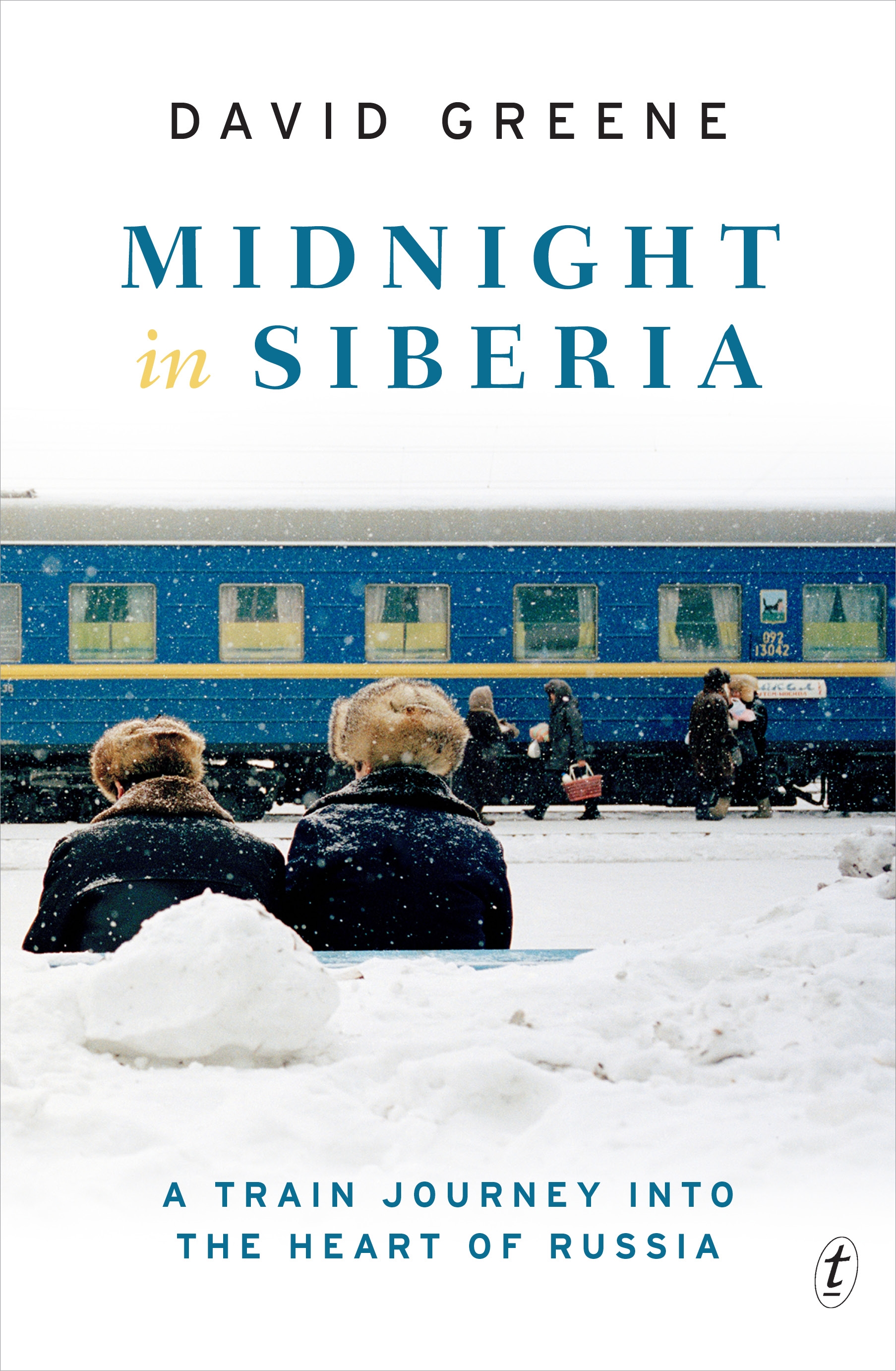It is 10:46 pm and Pour la Piano no. 3 by Claude Debussy is rippling in the background and I am going to attempt to write three book reviews in half an hour.

David Greene is host of NPR's Morning Edition. He spent over two years in Russia as NPR's Moscow Bureau chief. While there he traveled the Trans-Siberian Railway in order to interview people from all walks of life in big towns and small.
This is exactly my sort of book. It is simply about normal people, what is going on in their lives and what they think. He met young and old, yet there were definite things they all had in common.
Outside in public, they were all impersonal in a Bradbury-esque dystopian way. No one smiles or makes eye contact. The author saw two girls get hit by a car, but no one stopped hurrying by.
Yet, the author found that inside their houses they were the epitome of hospitality, welcoming you like a family member, loading food on you, drinking lots of alcohol (that the author felt obligated to join) and talking hours into the night.
He also encountered horrible bureaucracy for the simplest of things. Getting a train ticket or checking into a hotel required mountains of paperwork. He also noticed that he was followed everywhere.
Life is very, very hard in Russia. There is grinding poverty, although some people have huge wealth. Almost every woman Greene met was a single mom because she either kicked out her drunken husband or she was widowed because he drank himself to death. Depressing.
Also depressing is how corrupt the police force is and even more depressing is how every Russian he talked to decided that democracy didn't work and they needed another Stalin.
"The government took care of us under Soviet times," they said. "We had enough to eat and a place to live. Now it's different."
It's like listening to the Israelites long for Egypt. They seem to forget they were slaves.
This book allowed me a taste of present day Russia. Greene writes very well and obviously cares about the people he lived with for a few years. If you like hearing people tell their life stories, especially from a country as fascinating as Russia, you will enjoy this book.
I have been submitting stories to magazines and have noticed that there are quite a few that want travel stories. Therefore I am writing up my own experiences when I traveled overseas and plan to submit them when I get the essays in finished form. While writing, I had to hearken back to books about the art and places I saw to get details correct. Consequently I ended up reading two coffee table books about Italy and Rome.
Michelangelo by Yvonne Paris has plenty of big, glossy pictures of all the Master's works. Paris works meticulously over the history of Michelangelo's life and when and where he created each work. She quotes many other biographers which offers a compilation of different scholars' research and analysis of one of the greatest artists known to us.
The final book is The Colosseum. This is a wonderful book, not only for it's history of Flavian's Amphitheater, as it was known, but also for the information it provides about the Caesars and writers of ancient Roman history. It follows the rise of the Holy Roman Empire and the various European leaders across the years who impacted Roman history. The last part lists writers from Goethe to Lord Byron to Charles Dickens and even Longfellow who came and wrote of the Colosseum.
For me particular interest was the fall of ancient Rome, the barbaric invasions, as little as 500 hundred people populating the ruins, and how Rome slowly grew again to be a city of influence.
The games are described, not in excruciating detail, but cannot but be gruesome because of the total waste of life. By the sixth century:
...many noble species of wild animals had vanished from the Roman Empire: North Africa had lost its elephants; Nubia, its hippopotami; Mesopotamia, the powerful lions...Hyrcani, its famous Caspian tigers..All had been chased out of their natural habitat or slaughtered for the delectation of a Roman audience. (pg.51)
And that's not including the carnage of human life.
Both books are filled with photos and give good overviews of Italian history, with many references for someone, such as myself, who would want to read more literature on the subject. Before I had finished either book I had ordered the Life of Michelangelo by Vasari (a contemporary of the artist) and Suetonius' The Twelve Caesars.
You'll be reading reviews of those books in the future.
My son and Moses




4 comments:
I sometimes listen to Morning Edition and am familiar with David Greene.
I agree books like this, that cover everyday life in a place can be so enlightening as to people and society.
The Colosseum also sounds so good. The history around that place is particularly fascinating. It encompasses such a large swarth of time that saw so much change.
Hi Brian! I think Greene's book is far more interesting than I presented it. I think you'd really enjoy reading it.
I am becoming increasingly fascinate with every aspect of history and culture, both ours and international cultures. It is so interesting.
Sharon, thanks for coming by! Good to e-meet. I'm going to ramble a little before I run off to a meeting. Good luck with those travel essays...
Thanks for visiting my blog Marly. Have a great day!
Post a Comment